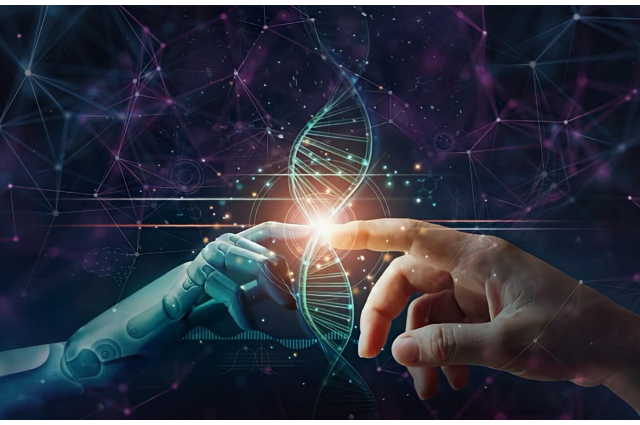
Artificial Intelligence, or AI, is no longer a science fiction or future theory concept—it is a fast-growing discipline that is changing the way we work, live, and communicate. Essentially, AI involves the creation of computer systems that are capable of executing tasks usually involving human intelligence. Such tasks include problem-solving, learning from experience, recognising natural language, identifying objects or speech, and decision-making. With its expanding presence in industries and everyday life, AI has become one of the 21st century's most disruptive and significant technologies.
AI is usually classified into two general types: Narrow AI and General AI. Narrow AI, also referred to as weak AI, is created to accomplish a specific task, like voice recognition or playing chess. It is already extensively deployed in use cases such as recommendation systems at Netflix, email spam filters, and virtual assistants like Google Assistant or Alexa. General AI, or strong AI, on the other hand, would have the capacity to comprehend, learn, and use intelligence the way human beings do. General AI is yet to happen, as we have not been able to make machines with so much cognitive power and consciousness.
The applications of AI in the real world are huge and increasing day by day. In the medical sector, AI is ushering in a revolution. It is employed to detect diseases, scan big medical data, and even help perform surgeries. For instance, AI computer programs can analyse X-rays, MRIs, and CT scans with a precision that equals, and at times exceeds, the capability of human physicians. AI was instrumental in monitoring outbreaks, predicting patient outcomes, and aiding in vaccine development during the COVID-19 pandemic. Telemedicine platforms now utilise AI to conduct real-time health screenings and symptom checkers, making healthcare more convenient and efficient.
In education, AI helps to create personalised learning experiences. Adaptive learning platforms analyse a student’s progress and tailor educational content to meet individual needs, allowing students to learn at their own pace. Virtual tutors, powered by AI, are also available 24/7 to assist learners in solving their doubts and providing proper explanations. Furthermore, teachers benefit from AI by using data-driven insights to improve classroom strategies, assess performance, and reduce administrative burdens like grading.
The finance and business industries have adopted AI to simplify operations and make more informed decisions. AI systems are applied to detect fraud, credit scoring, forecasting market behaviour, and even in customer support through virtual agents. Businesses are automating routine tasks and freeing up human workers for creative and strategic functions. In marketing, AI assists in the analysis of consumer behaviour so brands can provide targeted advertising campaigns and personalised product suggestions.
Transportation is another sector undergoing a dramatic AI-driven shift. The most well-known of all AI applications is the development of autonomous vehicles. Autonomous automobiles rely on AI to interpret sensor, camera, and GPS data in order to drive down roads safely. While still in the testing stage throughout much of the globe, autonomous transportation has the potential to make our roads safer, more fuel efficient, and alter how goods and humans travel. There are always pros and cons to any technological advancement. AI helps reduce human error and risk, offers 24/7 availability, unbiased decision making, and cost reduction. With all the advantages listed above, it can seem like a no-brainer to adopt AI for your business immediately. But it’s also prudent to carefully
ARTIFICIAL INTELLIGENCE: SHAPING THE FUTURE OF HUMANITY
Consider the potential disadvantages of making such a drastic change. Adopting AI has a myriad of benefits, but the disadvantages include things like the cost of implementation and degradation over time. The biggest and most obvious drawback of implementing AI is that its development can be extremely costly. Depending on what exactly you need AI to do, the cost changes. It lacks the human ability to use emotion and creativity in decisions, and Ethical problems. As AI becomes more commonplace at companies, it may decrease available jobs, since AI can easily handle repetitive tasks that were previously done by workers. Artificial Intelligence is no longer a something-out-of-a-science-fiction- novel, operational costs have decreased by as much as 30 percent. This technology personalises learning, helping students learn better with tailored feedback and adaptive content. Businesses have benefited greatly as well; IBM claims re-engineering customer IBM re-engineering that AI-driven chatbots now manage more than 85 percent of customer interactions, saving on identifying over 50 different eye conditions more accurately than expert ophthalmologists. Also in education, sites like Khan Academy and Duolingo are revolutionising the world in tangible and measurable ways. In medicine, say, Google’s Deep Mind built an AI tool that can. AI is definitely 'not out-of-a-vat-in-a-sci-fi-novel scenario' anymore, rather it's already
Thus, Artificial Intelligence has the potential to transform our world positively. From enhancing healthcare and education to economic growth and solving global problems, AI has the potential to be an effective tool if it is developed and utilised responsibly. It does, however, require careful governance, moral vision, and collaboration between technologists, policy makers and the public. Going forward into the AI age, the question is whether the technology will make human existence better, not displace or control it.
